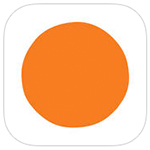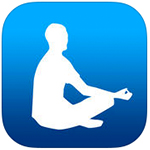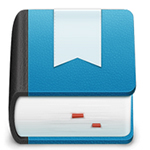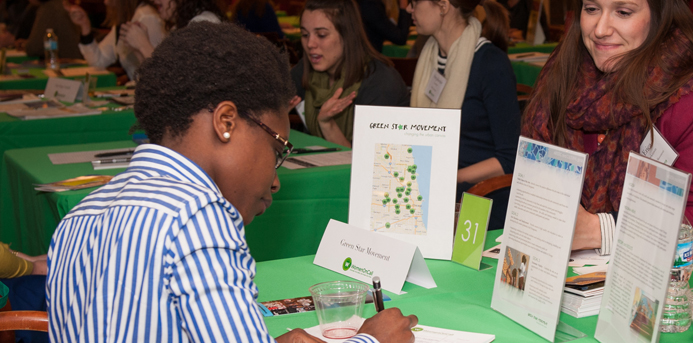Early to bed and early to rise may make you healthy, wealthy and wise, but it won’t make you happy. “Prosperity and health (and physical attractiveness) are only minimally related to one’s overall happiness,” notes Sonja Lyubomirsky in her book, “The How of Happiness: A New Approach to Getting What You Want.” Current research suggests that up to 40 percent of our happiness depends on our habits and activities.
These days many of our “habits and activities” have become techno-centric. We refresh our email, Facebook, Instagram, Twitter and favorite news sites again and again. Technology exhausts our thumbs and fuels “fear of missing out” (FOMO) and anxiety over our number of “likes.”
The key to ensuring that our electronic helpers actually do help us is in utilizing them the right way—by fostering practices that lead to happiness. Specifically, cultivating a positive mindset, learning to be more mindful, appreciating the gifts in our lives, remembering joyful moments and helping others.
These digital resources will aid in your quest for contentment.
General Happiness
The following options delve into happiness research and offer suggestions for creating positive habits.
Podcast
Gretchen Rubin, author of “The Happiness Project,” “Happiness at Home” and “Better Than Before,” partners with her “sister the sage,” Elizabeth Craft, for this weekly podcast that began in March 2015. Each 20-minute segment offers strategies and tips for building happiness habits into everyday life. Episodes also feature “try this at home” challenges and questions to help you learn about yourself and identify your stumbling blocks to happiness. Free, available online and on iTunes, SoundCloud, Stitcher
Web Talk
“The Happy Secret to Better Work”
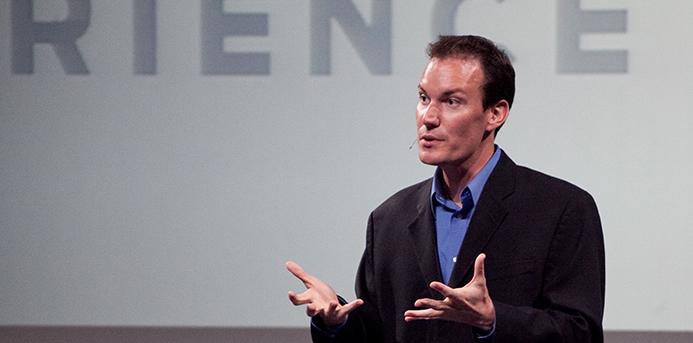
Positive psychology researcher and educator Shawn Achor’s 12-minute TED Talk on happiness at work has been viewed more than 10 million times. That’s because he entertains as he explains why we should flip the notion of working to be happy. He also reviews five practices that can train your brain to be more positive. Free, available online
Web Class
This eight-week online class offered through EdX was created by UC Berkeley’s Greater Good Science Center. Co-instructors, Dacher Keltner and Emiliana Simon-Thomas are leading authorities on positive psychology and will be joined by experts in related fields of empathy, mindfulness, and gratitude. Together they’ll discuss how cutting-edge research can be applied to your life and help you track your happiness along the way. Free, available online, next course begins Sept. 9
Positivity
Barbara Fredrickson, psychology researcher and author of the book “Positivity,” found that positive emotions broaden your sense of possibility and open your mind to new options and skills. Even if you weren’t born an optimist, surrounding yourself with positive people, images and news helps cultivate the mindset.
Billed as “good news—right to your inbox,” this email digest is designed to challenge and inspire you as you work to become a more positive person. Sign up online to receive daily or weekly articles, inspiring quotes and blogs. Recent topics include “How to Clear Negative Energy and Fear,” “50 Inspiring Children’s Books with a Positive Message” and “The Real Reason You Want More Money.” Free, available online
Mindfulness
Mindfulness, or more simply being present in the moment, helps cure our technology-fueled short attention spans. Findings suggest that meditation practice reduces stress, boosts working memory and focus, and leads to more satisfying relationships. A few minutes a day makes a big difference.
App
Headspace is meditation made simple. Former Buddhist monk and app creator Andy Puddicombe likens it to a “gym for your mind,” helping you train your brain for calm and clarity. “Take 10” is the app’s free 10-day program for beginners that will teach you the basics of meditation in 10 minutes a day. If you want to continue and expand your practice, you can subscribe for additional content including guided and unguided exercises, and the opportunity to zero-in on your health, performance or relationships. Free 10-day program or various subscription plans ranging from monthly ($13) to forever ($420); available online and on iTunes, Google Play, and Amazon Appstore
App
The Mindfulness App helps foster a sense of being in the moment through custom guided or silent meditation practices, five-minute exercises on arriving and centering, and a calming body scan. In addition, you can set “Mindfulness Notices” to arrive on your device at specific times or locations, reminding you to, for example, “Breathe in through the entire body” or “Note what is happening—right now” when you wake or arrive at work. This app is appropriate for beginner and experienced practitioners. $2, Available on iTunes and Google Play
Gratitude List and Journaling
Nineteenth-century Spanish Philosopher Jose Ortega y Gassett is quoted as saying: “Tell me to what you pay attention, and I will tell you who you are.” You can train yourself to focus on more positive experiences and emotions by keeping a daily gratitude list or journal; you’ll start actively looking for happy things to report.
App
Use this App on the go or at your desk to capture the moments that make for happy memories. Set a password to keep your journal private and daily reminders so that you remember to consider what you’re grateful for. You can also incorporate photos, the current weather or tag your location. $9.99,available on iTunes for Mac and iOS; Android users try Day Journal App
Helping Others
Various studies have shown that giving leads to happiness in children, compassion in college students and delayed mortality in older people. Meaning, it’s never too early (or late) to reach out to others. Plus altruism activates parts of our brains associated with trust, pleasure and social connection. Everyone wins—and is happier.
Website
Want to volunteer but not sure you have the time or know which nonprofit can best utilize your skills? WomenOnCall is a site that connects female volunteers with opportunities—one project at a time. The web-based platform pairs nonprofit organizations with skilled professionals to work on short-term, high-impact projects. In 10 hours of service or less, you’re able to help a nonprofit organization fulfill their mission and make a positive difference in the world. Free, online
App and Website
This app and website will help you make informed giving decisions. Charity Navigator reviews the financial health, accountability and transparency of thousands of nonprofit organizations and assigns a numerical score and starred rating and provides graphs and supporting information. Search by location or attributes such as size or CEO salary or use lists like “10 Charities Routinely in the Red” or “10 Charities Worth Watching.” Create a free account to save your favorites. Free, online
Additional factors that contribute to happiness are exercise, personal relationships and forgiveness. There are too many digital exercise helpers and social media sites to list here. Forgiveness? Well, there’s no app for that.
Enjoy your happy journey and please share your own favorite resources below or via social media using the hashtag #MIBfavorites (be sure to tag us on Instagram (@makeitbetterns), Twitter (@makeitbetterns) or Facebook (@makeitbetter.net).
If you enjoyed this article, please also read:


